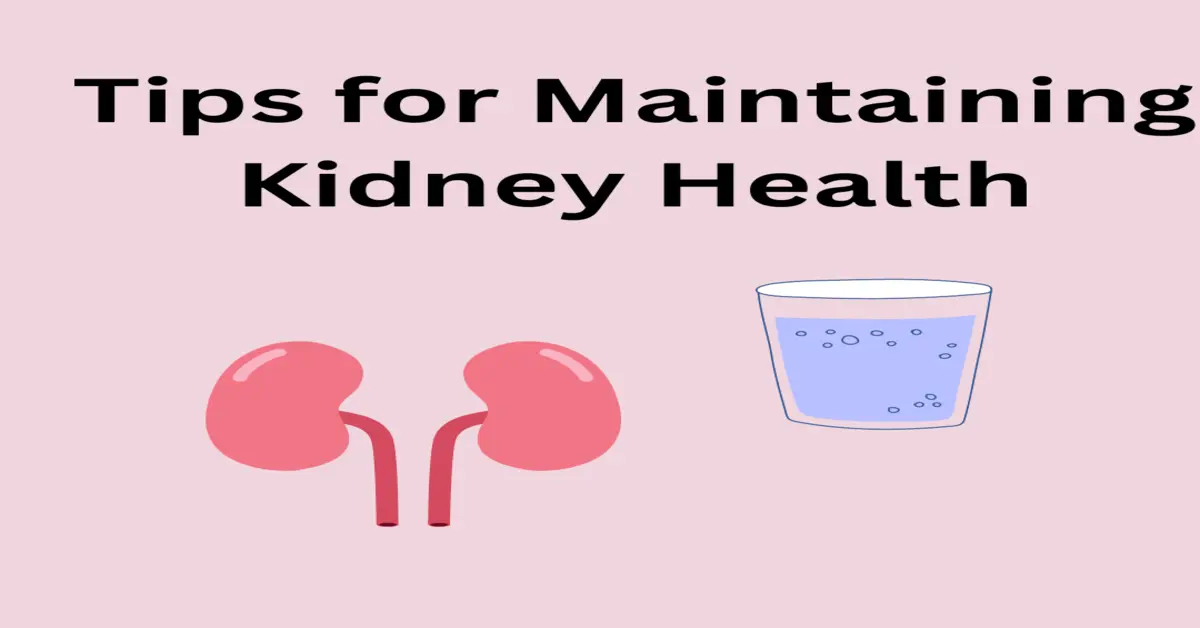- Introduction
- Importance of Kidney Health
- Tips for Maintaining Kidney Health
- Stay Hydrated
- Eat a Balanced Diet
- Monitor Blood Pressure
- Exercise Regularly
- Limit Salt Intake
- Avoid Over-the-Counter Painkillers
- Manage Diabetes
- Quit Smoking
- Limit Alcohol Consumption
- The Role of Sleep
- Reduce Stress
- Regular Check-ups
- FAQs (Frequently Asked Questions)
- Conclusion
Introduction
Kidney health often takes a backseat in our daily lives, overshadowed by more visible health concerns. However, these bean-shaped organs play a vital role in maintaining our overall well-being. Just like any other part of our body, our kidneys require proper care and attention. In this comprehensive guide, we’ll delve into the importance of kidney health, provide you with actionable tips, and address some common questions to ensure your kidneys function optimally.
Importance of Kidney Health
Your kidneys, two small organs located on either side of your spine, are responsible for filtering waste products and excess fluids from your blood to form urine. They also play a role in controlling blood pressure, making red blood cells, and balancing electrolytes. In essence, your kidneys act as a natural filtration system for your body, ensuring that toxins are eliminated and essential nutrients are retained.
Tips for Maintaining Kidney Health
-
Stay Hydrated: It’s important to drink enough water to keep your kidneys healthy. Proper hydration helps your kidneys flush out toxins and prevents the formation of kidney stones. Aim for at least 8 glasses of water a day, and adjust your intake based on your activity level and climate.
-
Eat a Balanced Diet: A kidney-friendly diet includes a variety of fruits, vegetables, whole grains, lean proteins, and healthy fats. Avoid excessive consumption of processed foods, which are often high in sodium and harmful additives.
-
Monitor Blood Pressure: High blood pressure can damage blood vessels in your kidneys, reducing their ability to function properly. Regularly check your blood pressure and take steps to manage it through a balanced diet, exercise, and, if necessary, medication.
-
Exercise Regularly: Physical activity promotes circulation, which is beneficial for your kidneys. Aim for at least 30 minutes of moderate exercise most days of the week to maintain overall cardiovascular health.
-
Limit Salt Intake: Excessive salt consumption can contribute to high blood pressure and kidney damage. Read food labels, avoid adding extra salt to your meals, and opt for herbs and spices to enhance flavor.
-
Avoid Over-the-Counter Painkillers: Non-prescription pain relievers like NSAIDs (non-steroidal anti-inflammatory drugs) can harm your kidneys if used excessively. Before starting any new medication, be sure to talk to your healthcare provider.
-
Manage Diabetes: Diabetes is a main reason behind kidney issues. If you have diabetes, closely monitor your blood sugar levels and follow your doctor’s recommendations to manage the condition effectively.
-
Quit Smoking: Smoking impairs blood flow to the kidneys, reducing their ability to function. If you smoke, seek support to quit and improve your kidney health.
-
Limit Alcohol Consumption: Excessive alcohol can disrupt the electrolyte balance in your body and strain your kidneys. Drink alcohol in moderation, following recommended guidelines.
The Role of Sleep
Adequate sleep is essential for overall health, including kidney health. While you sleep, your body gets busy repairing and renewing itself. Poor sleep patterns can disrupt this process, affecting your kidneys and other vital organs. Aim for 7-9 hours of quality sleep each night to support optimal kidney function.
Reduce Stress
Chronic stress can contribute to high blood pressure and other health issues that impact kidney health. Participate in stress-relieving activities like yoga, meditation, deep breathing, or spending time outdoors. Discover what helps you unwind and add it to your daily schedule.
Regular Check-ups
Even if you feel fine, regular medical check-ups are crucial for early detection of any potential kidney issues. Routine blood tests can help monitor your kidney function and identify any abnormalities before they worsen.
Conclusion
Caring for your kidneys is a fundamental aspect of maintaining overall health and well-being. By following these tips for kidney health, you’re taking proactive steps to ensure your kidneys function optimally and continue to support your body’s vital functions. Remember, small lifestyle changes can have a significant impact on your kidney health in the long run. Prioritize your kidneys health for a healthier tomorrow.
FAQs
1. How can I tell if my kidneys are functioning properly?
Regular blood tests can measure your kidney function by assessing levels of creatinine and blood urea nitrogen (BUN). Consulting your doctor for guidance on your specific health markers is recommended.
2.Can I prevent kidney stones?
Yes, staying hydrated is key to preventing kidney stones. Drinking enough water helps flush out minerals that can contribute to stone formation.
3. Is it true that certain foods can support kidney health?
Absolutely! Foods rich in antioxidants, such as berries, bell peppers, and leafy greens, can help protect kidney cells from damage.
4. Can high blood pressure damage kidneys?
Yes, high blood pressure can strain blood vessels in the kidneys, impairing their function over time. Taking care of your blood pressure is a key part of looking after your kidney health.
5. How does diabetes affect kidney health?
Diabetes can damage blood vessels in the kidneys, leading to kidney disease. Managing blood sugar levels through a healthy lifestyle and medication, if necessary, is essential.




